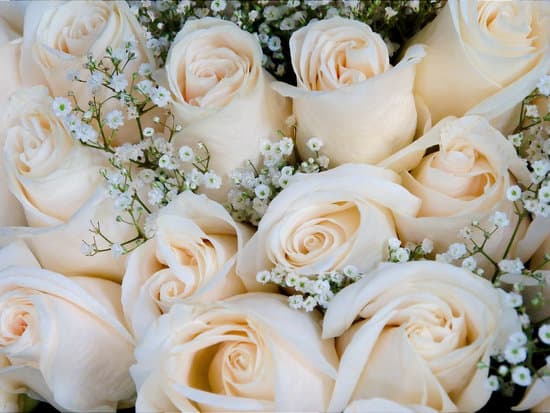How long is a Jewish wedding? This question may arise for those who are unfamiliar with the traditions and customs of a Jewish marriage ceremony.
The length of a Jewish wedding holds significant cultural and symbolic meaning, reflecting the rich history and values of the Jewish community. In this article, we will delve into the various aspects that contribute to the duration of a Jewish wedding, from pre-wedding traditions to the post-ceremony celebration, as well as the symbolic significance and cultural reasons behind it.
A Jewish wedding is not only a union between two individuals but also a representation of tradition, faith, and community. The length of the wedding encompasses various rituals and customs that hold deep meaning in Jewish culture. Understanding the significance of this duration provides insight into the values and beliefs that shape a Jewish marriage ceremony.
In addition to exploring the components that contribute to the length of a Jewish wedding, we will also examine how variances in location and cultural differences can impact the duration of the ceremony. By shedding light on these factors, we aim to provide a comprehensive understanding of what dictates how long a Jewish wedding lasts.
Pre-Wedding Traditions
In the Jewish tradition, a wedding is much more than just the ceremony and reception. It involves a series of customs and rituals that take place in the days leading up to the wedding day. These pre-wedding traditions hold significant cultural and spiritual importance for the couple and their families.
Tena’im: The Engagement Agreement
One of the pre-wedding traditions in Jewish culture is the Tena’im, also known as the engagement agreement. This document outlines the obligations of both families to each other, including financial responsibilities for the wedding and beyond. The Tena’im is signed by both sets of parents and often includes blessings for the couple’s future together.
Aufruf: The Groom’s Blessing
Another important pre-wedding custom is the Aufruf, which takes place during Shabbat services before the wedding. This tradition involves calling the groom to recite a special blessing over the Torah scroll in front of the congregation. It symbolizes his commitment to Jewish life and community as he prepares for marriage.
Mikvah: Ritual Purification
Many Jewish couples participate in a mikvah ceremony before their wedding day. The mikvah is a ritual bath that symbolizes spiritual purification and renewal. It is an opportunity for both partners to reflect on their individual journeys and prepare themselves emotionally and spiritually for marriage.
These pre-wedding traditions not only add depth to the wedding experience but also serve as reminders of the couple’s commitment to each other and their faith. As these customs are observed, they set the stage for a meaningful and spiritually rich celebration of love and union within the Jewish community.
The Ceremony
A Jewish wedding ceremony is a beautiful and meaningful tradition that is filled with symbolic rituals and customs. The ceremony typically begins with the signing of the ketubah, a marriage contract, followed by the bedeken, in which the groom veils the bride. After these pre-ceremony rituals, the main ceremony takes place under a chuppah, or wedding canopy, which symbolizes the new home being created by the couple.
During the ceremony, several important rituals take place, including the recitation of traditional blessings, the exchange of rings, and the reading of the Seven Blessings (Sheva Brachot). These seven blessings are recited by a rabbi or close family members and friends and are meant to bless and honor the newlywed couple.
Additionally, one of the most well-known traditions during a Jewish wedding ceremony is the breaking of glass. This act symbolizes both joy and sorrow and serves as a reminder of the destruction of the Temple in Jerusalem. The groom traditionally breaks a glass under his foot at the conclusion of the ceremony, followed by enthusiastic shouts of “Mazel Tov.” from all those in attendance.
- Components:
- Signing of Ketubah
- Bedeken
- Exchange of Rings
- Seven Blessings
- Breaking of Glass
Overall, a traditional Jewish wedding ceremony can last anywhere from 30 minutes to an hour or more depending on various factors such as cultural traditions and personal preferences. It’s important to note that some couples may choose to modify certain aspects of their ceremony to better reflect their beliefs or values. Ultimately, no matter how long a Jewish wedding ceremony lasts, it is a deeply spiritual and emotional experience for both the couple and their loved ones.
Wedding Reception
The wedding reception is a significant part of a Jewish wedding, serving as a joyous celebration following the traditional ceremony. A typical Jewish wedding reception can last anywhere from four to six hours, depending on various factors such as the location and cultural preferences of the couple and their families. The duration of the reception is often filled with meaningful customs and activities that add to the overall significance of the event.
During the reception, guests are treated to a lively atmosphere filled with dancing, music, and delicious food. It is common for the bride and groom to have their first dance together as a married couple, followed by the Hora, a traditional Jewish dance where guests form circles and lift the newlyweds in chairs. These activities not only symbolize unity and joy but also contribute to the festive nature of the celebration.
Another important aspect of the wedding reception is the speeches and toasts given by family members and friends, expressing well-wishes for the newlyweds. These heartfelt messages often add an emotional element to the festivities and provide an opportunity for loved ones to share their love and support for the couple.
Additionally, it is customary for guests to participate in celebratory rituals such as breaking bread or enjoying sweet treats, further adding cultural significance to the duration of a Jewish wedding event.
Ultimately, the duration of a Jewish wedding reception provides ample time for loved ones to come together in celebration while participating in meaningful customs that highlight the joyous occasion. The combination of lively activities, heartfelt speeches, and cultural traditions adds depth and significance to this post-ceremony celebration.
Symbolism
In Jewish tradition, the length of a wedding holds significant symbolic meaning. It is believed that a wedding should be a joyous and celebratory occasion, which is reflected in the duration of the event. The extended length of a Jewish wedding symbolizes the importance and seriousness of the commitment being made by the couple. The various components of the wedding ceremony and reception contribute to the overall meaning and symbolism of this special occasion.
One of the most notable aspects of a Jewish wedding is the seven blessings, known as the Sheva Brachot, which are recited during the ceremony. These blessings not only express happiness for the couple, but also represent the spiritual significance of marriage. The recitation of these seven blessings adds depth and meaning to the marriage union, further emphasizing why a Jewish wedding is meant to be an extended celebration.
Additionally, the length of a Jewish wedding also serves as an opportunity for family and friends to come together in support and unity around the marrying couple. The joyous atmosphere creates an uplifting experience for all involved, creating lasting memories for everyone present. Ultimately, this emphasis on community and celebration underscores why a traditional Jewish wedding often lasts longer than other types of weddings.
| Symbolic Meaning | Significance |
|---|---|
| Joyous Celebration | Reflects on the importance and seriousness of commitment |
| Seven Blessings (Sheva Brachot) | Expresses happiness for the couple; spiritual significance |
| Community Support and Unity | Celebration brings family and friends together in support of marrying couple |
Variances
A Jewish wedding is a significant event that holds cultural and religious importance, and the length of the ceremony and celebration can vary based on several factors. One key factor that can affect the duration of a Jewish wedding is the location where it takes place.
In Israel, for example, traditional weddings may be longer than those held in other countries due to specific cultural and religious customs. Similarly, weddings in Orthodox Jewish communities may also have longer ceremonies compared to those in more progressive or Reform Jewish communities.
Cultural differences can also play a role in determining the length of a Jewish wedding. For example, Ashkenazi Jews from Eastern Europe may have different wedding traditions than Sephardic Jews from Mediterranean regions, leading to variations in the length of the ceremony and celebration.
Additionally, the level of observance within a particular Jewish community can impact how long a wedding lasts. More observant communities may adhere to stricter guidelines and rituals, resulting in longer ceremonies compared to those with less stringent practices.
Another factor that can influence the duration of a Jewish wedding is the inclusion of specific customs and rituals. Some couples may choose to incorporate additional traditions into their wedding ceremony, such as circling each other seven times or reading specific readings or prayers, which could extend the overall length of the event.
As we explore how long a Jewish wedding is, it’s important to understand that these variances are what make each wedding unique and reflective of the couple’s heritage and beliefs.
| Factors Affecting Length | Examples |
|---|---|
| Location | Israel vs other countries |
| Cultural Differences | Ashkenazi vs Sephardic traditions |
| Inclusion of Specific Customs | Circling each other seven times |
Cultural Significance
Jewish weddings hold a deep historical and cultural significance, and the duration of the wedding reflects these traditions. Understanding the reasons behind the length of a Jewish wedding provides insight into the values and beliefs upheld by this ancient culture.
Historical Roots
The duration of a Jewish wedding can be attributed to its historical roots, dating back to ancient times. The Talmud, a central text of Rabbinic Judaism, outlines specific guidelines for the wedding ceremony and celebration, which have been observed for centuries. These traditions have been passed down from generation to generation, contributing to the cultural significance of the length of a Jewish wedding.
Cultural Importance
In Jewish culture, the wedding day is considered one of the most important events in a person’s life. As such, it is celebrated with great significance and reverence, often lasting for an extended period of time. The length of the wedding allows for various rituals and customs to be carried out, symbolizing the commitment and dedication of the couple as well as their families to uphold tradition.
Symbolic Meaning
The duration of a Jewish wedding also holds symbolic meaning. It signifies not only the union between two individuals but also the joining of two families and communities. The extended celebration serves as a time for joyous festivities, bonding, and reflection on shared values and heritage. This cultural symbolism adds depth and richness to the overall experience of a Jewish wedding.
The historical and cultural reasons behind the duration of a Jewish wedding extend beyond mere practical considerations; they reflect deeply held traditions that have shaped this important milestone in Jewish life for generations.
Conclusion
In conclusion, the length of a Jewish wedding plays a significant role in the overall experience and cultural significance of this important ceremony. From the pre-wedding traditions to the ceremony itself, and all the way through to the wedding reception, each aspect of a Jewish wedding contributes to the depth and meaning of this special event.
The duration of a Jewish wedding allows for various rituals, customs, and symbolic gestures to be incorporated, creating a rich tapestry of tradition and significance.
The historical and cultural reasons behind the length of a Jewish wedding are rooted in centuries-old customs that have been passed down through generations. These traditions not only add depth to the wedding ceremony but also serve as an expression of faith, community, and family. The symbolism embedded within each component of the wedding reflects values such as commitment, unity, and the importance of tradition within Jewish culture.
Ultimately, whether a Jewish wedding is relatively brief or extends over an entire day or more, the duration is reflective of the richness and depth of tradition within Judaism. The variances in length due to location and individual preferences do not detract from the cultural significance; rather they showcase the flexibility and adaptability within Jewish traditions while maintaining their core principles.
Overall, understanding how long a Jewish wedding lasts provides insight into its complexities and serves as a testament to its enduring cultural relevance.
Frequently Asked Questions
How Long Do Traditional Jewish Weddings Last?
Traditional Jewish weddings can vary in length, but they typically last around 30 minutes to an hour for the ceremony itself. However, the celebration and reception that follow can go on for several hours, often lasting late into the night.
What Is 7 Days Jewish Wedding?
A 7-day Jewish wedding refers to the period of time that includes the wedding day and then continues with a week-long celebration known as Sheva Brachot. During this time, the newly married couple is honored with special meals and blessings shared by family and friends.
What Is the Timing of a Jewish Wedding?
The timing of a Jewish wedding often takes place in the evening, after sunset. This is because Jewish days begin at sundown, so it is customary for weddings to take place during the evening hours. Additionally, Saturday evenings are often preferred to avoid conflicts with Shabbat observance.

I have been involved in marriages for over 20 years helping couples and singles understand more about them.





